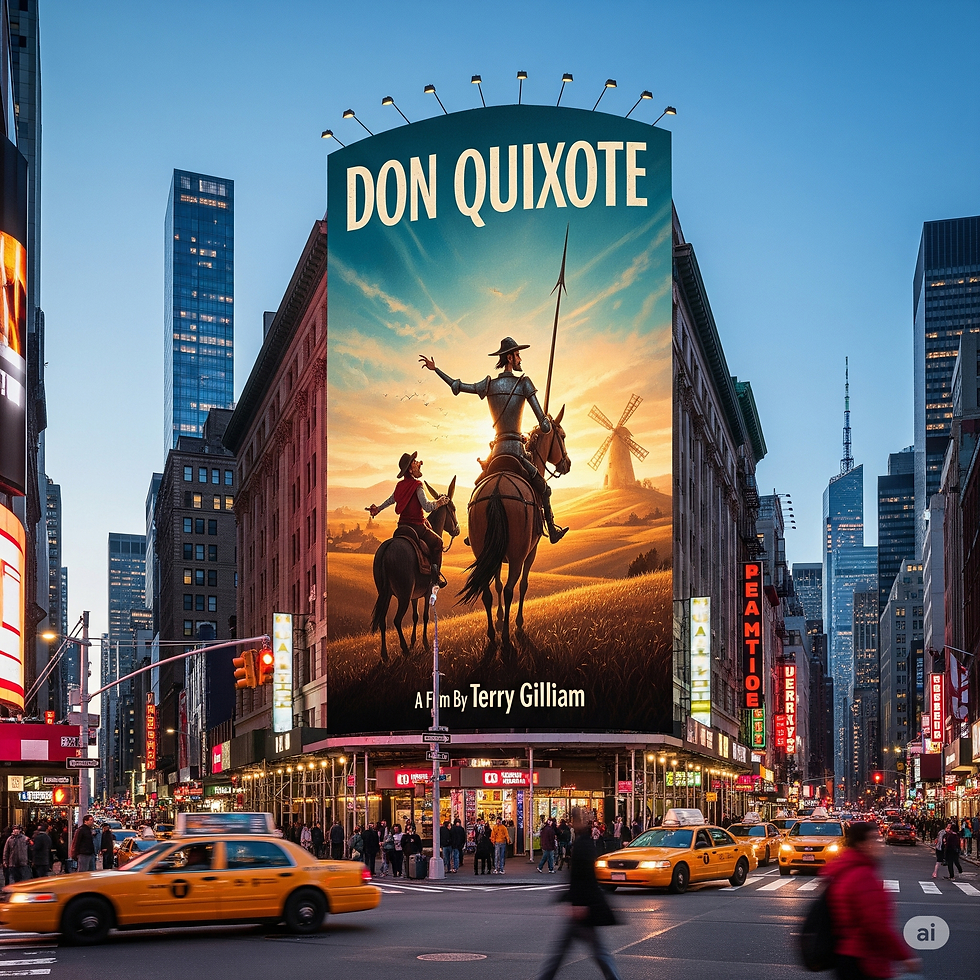Script Supervisor – Defined
- Edoardo Ceron
- Jun 22
- 4 min read
As an indie filmmaker, I’ve come to deeply appreciate the rigorous work of a script supervisor. This often-overlooked role is essential to ensuring continuity, clarity, and cohesion across every phase of film production. In this post, I’ll share insights into what a script supervisor does and why their presence is vital from pre-production through post.

Understanding the Role of a Script Supervisor
A script supervisor — sometimes called a continuity supervisor — is responsible for maintaining narrative and visual continuity during a production. Their tasks include tracking changes to the script, managing detailed notes during each scene, and ensuring that each shot aligns with the story’s timeline, geography, and logic.
The role demands exceptional attention to detail, strong organizational skills, and a solid understanding of screen grammar. Throughout my own experience on set, I’ve witnessed firsthand how an attentive script supervisor can make the difference between a disorganized shoot and a smooth, professional production.
Example from Set
On a recent project, our script supervisor prevented a major oversight. The director believed a scene had been completed, since we’d been shooting at the same location for two days. But when we double-checked the script notes, we discovered that only 6 of the 9 shots in that scene had been filmed. Thanks to the supervisor’s records, we avoided a costly reshoot.
Responsibilities by Production Phase
Pre-Production (and Development Input)
While script supervisors are typically brought on during pre-production, in smaller indie environments, they may be involved even earlier — especially when helping a director plan continuity-related logistics.
During pre-production, they:
Read the script thoroughly and break it down into scenes, characters, props, and locations
Estimate screen time for each scene
Create a continuity breakdown covering time of day, wardrobe, hair/makeup, and geography
Help the team identify potential continuity pitfalls ahead of time
⚠️ Note: In most standard productions, script supervisors do not give creative feedback on character arcs or story structure unless specifically invited. Their feedback is usually technical, ensuring logic and consistency across the timeline and scenes.
Example
In one script, a character wakes up at 6:00 a.m. and says they’re late for an event just a few blocks away. But in the next scene, they arrive at 7:00 p.m. That time discrepancy — a full 13 hours — didn’t align with the story. It’s easy for writers or directors to miss these logic gaps while immersed in the story, but a script supervisor’s job is to flag issues related to time, space, and cause-effect.
On Set (Production)
This is when the script supervisor becomes fully active and visible on set. Their tasks include:
✅ Real-Time Continuity Tracking
Monitoring actor positions, wardrobe, props, and eye lines between takes
Ensuring that if a glass is half-full in one take, it remains so in matching angles
Keeping meticulous logs of each shot, scene number, take number, and dialogue changes
✅ Note-Taking for the Editor
Recording which takes the director liked (circle takes)
Writing up lined scripts showing what coverage was shot
Marking any on-set improvisations or deviations from the script
✅ Communicating Script Changes
Script supervisors are a critical communication link between departments. If dialogue is changed or scenes are restructured, they’re responsible for updating notes and informing the AD, the editor, sound, camera, and sometimes even makeup or wardrobe.
Post-Production
Once filming wraps, the script supervisor's work continues in post:
📋 Assisting the Editor
Their notes help editors:
Match shots between takes
Keep visual and audio continuity
Understand which takes the director preferred
Catch potential mismatches or bloopers early
For editors dealing with non-linear shoots, the script supervisor’s logs act as a map through the puzzle.
🎬 Final Review
If available, the script supervisor may also screen the final cut with the director to double-check continuity and ensure no last-minute inconsistencies slipped through. While not always part of their formal role, this is particularly common in indie productions.

Why Script Supervisors Are Essential in Indie Filmmaking
For indie films, where time and resources are limited, a good script supervisor can prevent major continuity problems and expensive reshoots. On small sets, the script supervisor often takes on multiple duties, and their documentation can support everyone from editors to marketing teams.
In my own journey through indie filmmaking, I’ve learned that prioritizing continuity enhances not just the story, but the professional credibility of the project. When done right, audiences don’t notice the script supervisor’s work — but when it’s missing, even casual viewers can sense the inconsistencies.
Essential Takeaways
The script supervisor is the guardian of continuity — across time, space, logic, and story detail.
Their role spans pre-production, production, and post-production.
They serve as the bridge between the director’s vision and the editor’s execution.
Indie filmmakers especially benefit from having one on set — even if the role is combined with others.
Whether you're embarking on your first feature film or leading your next indie project, don’t overlook the script supervisor. Their contributions behind the scenes may not be glamorous, but they are vital to telling a story that makes sense — shot by shot, scene by scene.


